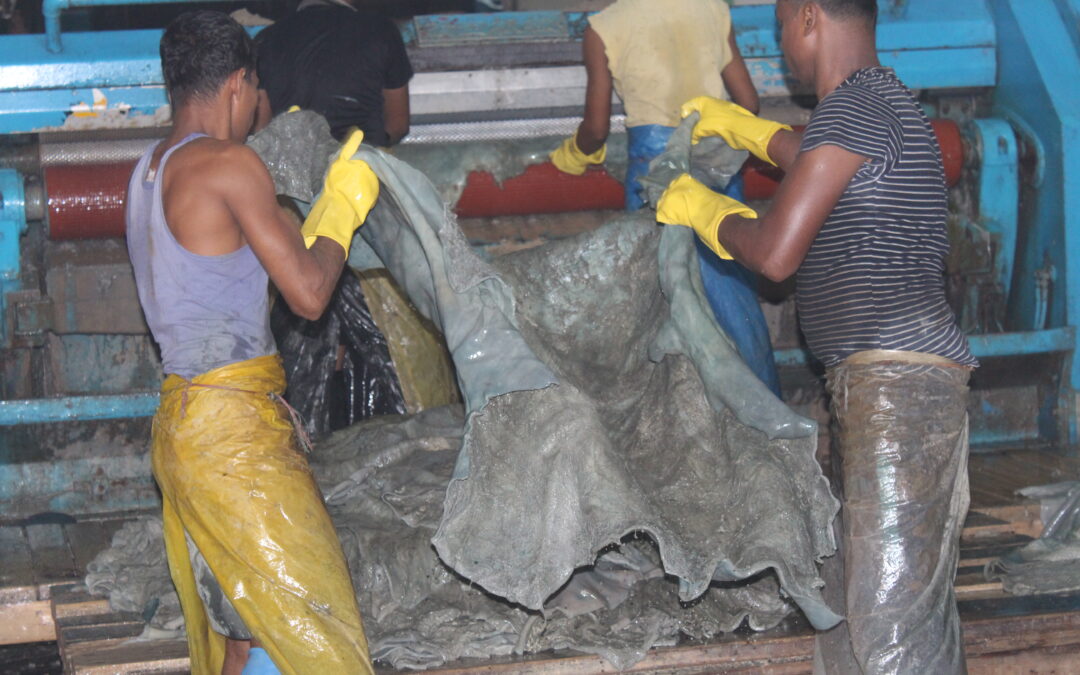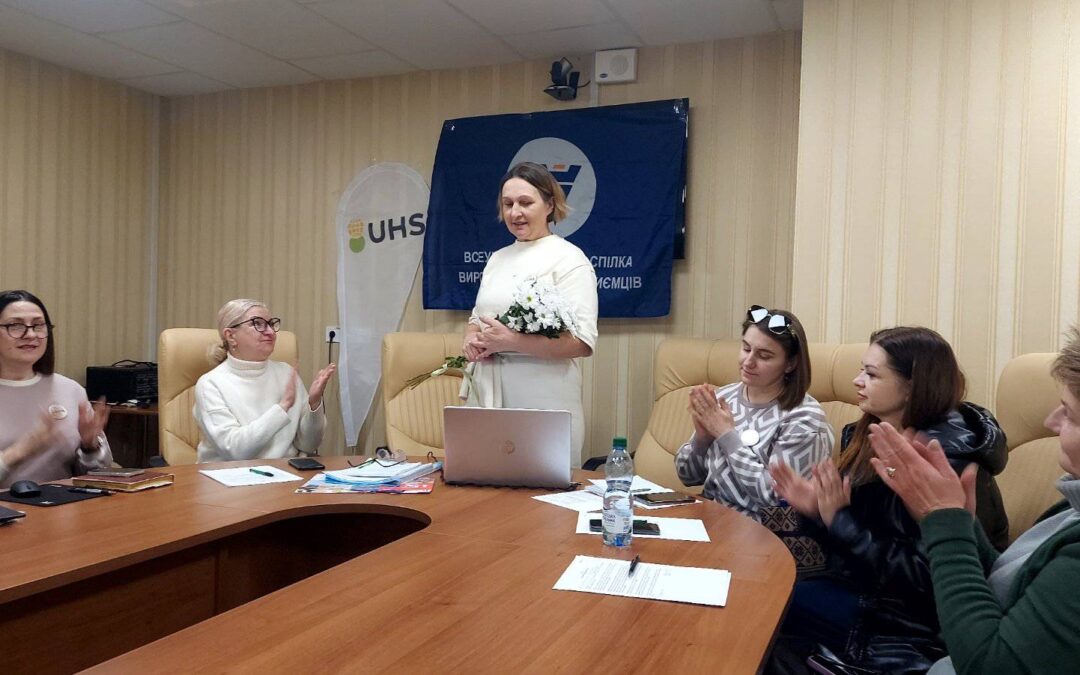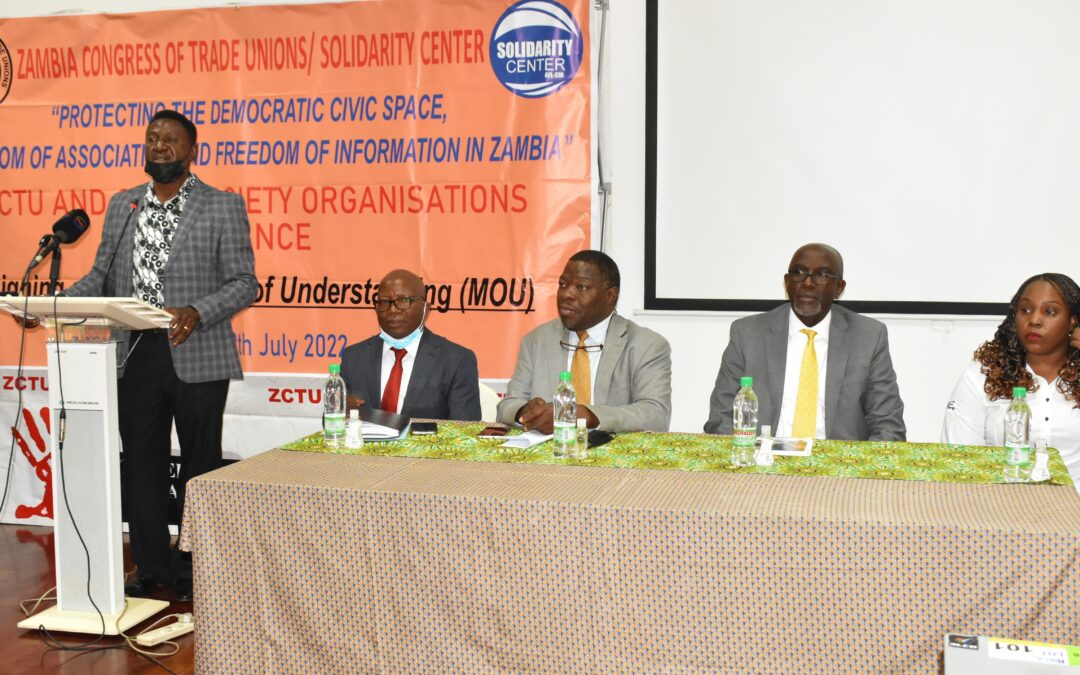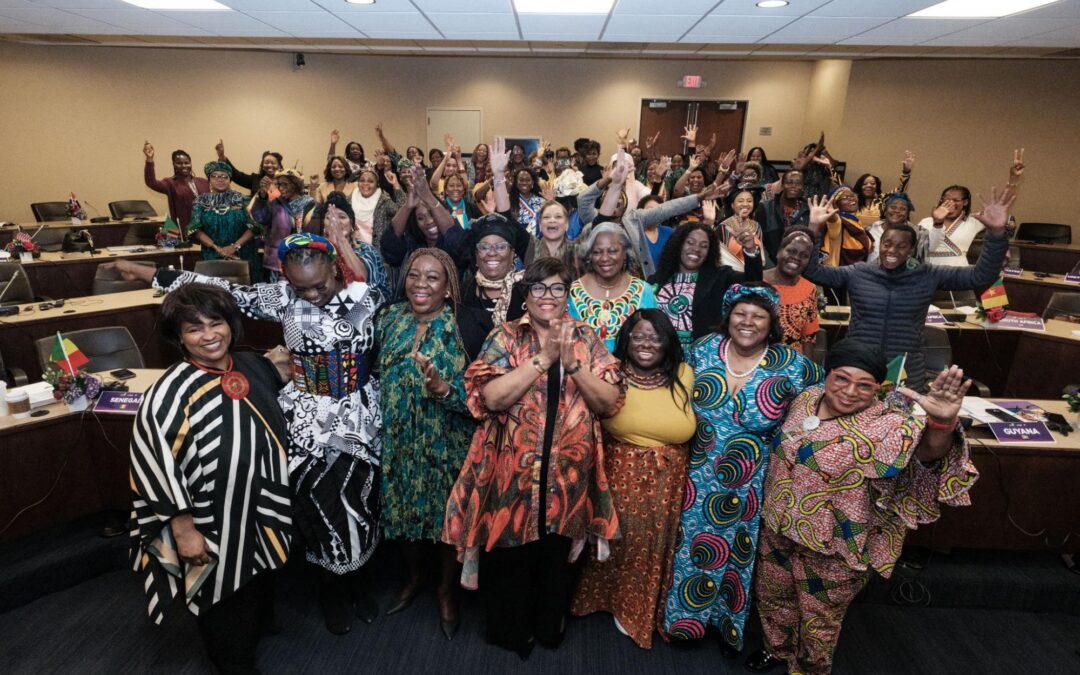
Apr 18, 2024
Marking this year’s Earth Day, the Solidarity Center is launching a new video about Bangladesh tannery workers’ campaign for safer, healthier and greener jobs. Available in English and Bangla, the video provides a window into one of the country’s most dangerous jobs and demonstrates how the tannery sector sits at the intersection of the worker rights and environmental justice movements.
Bangladesh’s leather sector, which satisfies one-tenth of world demand and whose exports of leather and leather goods totaled $1.1 billion in 2022, profits from a model that relies on low wages, lax workplace safety and unchecked environmental degradation. Its processes involve a stew of dangerous chemicals and heavy metals. Left untreated or flushed into waterways or surrounding areas, as happened in Hazaribagh, Dhaka, for decades, these substances pollute the environment, sicken workers and the local population, contaminate the air and water sources, and make food production dangerous. In Savar Tannery Industrial Estate in Hemayetpur—to which the government in 2017 ordered approximately 25,000 tannery workers and their families to move amid increasing international pressure regarding Hazaribagh’s toxic environmental and working conditions—factory sludge and effluents are not being effectively treated and new environmental threats are being created.
Meanwhile Bangladesh is one of the most acutely climate-impacted countries, with cyclones, flooding and extreme heat increasingly common. Around the world and in Bangladesh, climate change hits the poorest and most marginalized communities hardest. Worsening climate change, combined with environmental degradation in the workplace and surrounding communities, have compounding impacts on workers and their families.
A recent Solidarity Center survey of tannery workers living in Hemayetpur illustrates how the impact of industrial pollution, harsh working conditions and low wages is leaving workers, their families and their communities increasingly vulnerable to serious health issues and more frequent climate-related shocks in the country.
Workers said they have suffered exposure to fire or electric shock, falling, cutting, broken bones, heavy objects falling on them, contact with acid or chemicals, and inhalation of chemical fumes or gas. Health issues diminish workers’ earnings—which workers said were insufficient for covering basic needs. At the same time, costs have skyrocketed, including for transportation, which is made more challenging when regular waterlogging and flooding make roads impassable.
Local communities have reported that they are afraid or unable to grow food or catch fish, and note that just breathing the polluted air is enough to ruin their appetite. Poor water quality, meanwhile, adds to the burden of women’s care work, and more women than men mentioned now having to spend more time collecting water and doing so from greater distances.
“We used to cook with the water of [the] river. I used to bathe in the river. But we cannot do anything with the river water now,” a woman community member affected by the Savar Tannery Industrial Estate told the Solidarity Center last year.
With Workers, Toward a Safer, Greener, More Fair Industry
Because workers best understand the hazards and solutions to improving their jobs—and how they and their families are most disproportionately impacted by the health consequences of environmental degradation—workers are demanding inclusion in industry decision-making and wage-setting processes.
The Solidarity Center partners in Bangladesh with the Tannery Workers Union (TWU) representing those who—like others in Bangladesh and around the world—are suffering geographic displacement and other climate change consequences, as well as environmental degradation at work and in their communities.

Apr 17, 2024
In a first for Ukraine, in-home childcare workers including nannies and babysitters organized and then elected domestic worker Tetiana Lauhina to head their new labor organization, Union of Home Staff (UHS).
“[My colleagues] are amazingly hard-working and well-educated. I want all of them to be recognized as workers and officially protected,” says Lauhina in a video interview.
The Union of Home Staff (UHS), formed by 17 domestic worker activists, will vigorously advocate with Ukraine’s lawmakers and government to ensure protections for domestic workers and formalization as workers under the country’s labor law.
As an outgrowth of nongovernmental organization Union of Home Staff (UHS), the new union will continue to use its allied organization’s name and acronym, UHS, expanding its services as an information hub and community center, including for its 1,800 Facebook members.
Ukraine’s first nationwide survey of domestic workers last year found that working without contracts and formal recognition had left most survey respondents victims of low pay, wage theft, confusion about employment status, exclusion from the country’s pension system and minimal capacity to exercise their right to freedom of association. And, without legal formalization as workers, Ukraine’s domestic workers lack access to care rights and services for themselves and their families—including maternity and child benefits, long-term care services and disability compensation for workers who die or are injured in their employers’ homes.
“[The domestic worker] is not secure and she is nobody for the state,” says Lauhina.
Because women account for three-quarters of the 75.6 million domestic workers globally, domestic worker rights are key to the achievement of gender equality. On International Women’s Day this year, the ILO issued a new policy brief urging governments and employers’ organizations to ensure that domestic workers have access to labor rights and social protections.
Nongovernmental organization UHS was formed in 2019 with support from Ukraine labor rights nongovernmental organization Labor Initiatives (LI) and the Solidarity Center to raise awareness about labor rights challenges for Ukraine’s care economy workers and support the country’s legislative efforts to formalize domestic work.

Apr 15, 2024
In the face of intense pushback by exploitive global app-based companies operating in the Republic of Georgia—where workers are beholden to algorithmic whims to earn their uncertain livelihoods—unions are fighting for platform worker rights through advocacy campaigns, legal challenges and organizing drives.
“Solidarity and unity in protecting our rights are essential,” says Georgian Yandex and Bolt food-delivery app driver David Rochikashvili, who credits the Georgian Trade Unions Confederation (GTUC) with helping drivers like him file a Tbilisi City Court lawsuit demanding recognition of drivers’ employment relationship with Yandex and Bolt.
An International Lawyers Assisting Workers Network (ILAW Network) report—which analyzes 30 recent employment cases across 18 countries—found that app-based companies “go to extraordinary lengths to construct an impenetrable legal armory around themselves, requiring workers, unions and/or the state to overcome innumerable hurdles should they wish to impose any employment obligations on the companies acting as ‘employers.’”
People who are denied legal worker status are ineligible for the minimum wage, holiday or sick pay, social security contributions and worker rights protections afforded by national labor laws—including the right to safety on the job. By wrongly denying a direct employment relationship with app workers, app-based platform companies are growing their profits at workers’ expense and threatening decades of hard-won human and worker rights progress toward achieving decent work. Globally, unions are fighting back.
In Tbilisi—where the cost of living has risen dramatically, including rents that have more than doubled year over year—couriers for food delivery company Wolt in 2023 struck to protest a new remuneration system that couriers said would severely cut their earnings. Wolt owner DoorDash—having generated more than $100 billion in sales since inception—last year achieved second place on Forbes’s Midas List Europe.
Georgia’s transport and agricultural worker unions, among others, are stepping in to support rideshare and delivery workers’ organizing efforts across various platforms.
“Hundreds of platform workers have been organized and are collectively striving to improve their working conditions [in Georgia],” says GTUC Vice President Raisa Liparteliani.
The Solidarity Center’s ILAW Network is continuing to train Georgian Bar Association worker rights lawyers on how to protect delivery workers’ rights in the country’s courts, and is pursuing advocacy work with Georgian policymakers and legal experts through legal conferences that highlight app-worker rights and best practices. And, after Wolt courier Shakro Metrevelis’s case failed in a lower court, ILAW and the GTUC are appealing it in the Supreme Court of Georgia to advance Metrevelis’s groundbreaking effort to establish legal status as a Wolt LLC Georgia employee.
With union support, workers on digital platforms, through courts and legislation, are beginning to make significant gains, especially in Europe and Latin America. In a first for app-workers anywhere, European Union (EU) member states last month reached a provisional agreement on an EU platform work directive that includes a presumption of employment and rights on algorithmic management.

Apr 11, 2024
Just days before the Hotel Farah Casablanca closed for a yearlong renovation at the end of February, its union negotiated to ensure that workers would not be left without an income and could return to their positions when the hotel reopened.
The deal, known as a protocol agreement, struck by the National Federation of Hotel, Restaurants and Tourism (FNHRT), an affiliate of the Moroccan Workers Union (Union Marocaine du Travail, UMT), and the Barceló Group, the hotel’s new owner, guarantees that all 102 permanent workers will receive 79.5 percent of their salaries under $500 and 75 percent of salaries above $500 for a year plus 70 percent of the 13th month salary bonus.
The new agreement builds on an earlier deal, negotiated and signed with the previous owner prior to the sale to Barceló, which boosted pay between 7 percent and 12 percent and ensured smooth labor relations.
“If they hadn’t come to an agreement, they couldn’t have sold the property. They had to stabilize the situation with the workers,” said Hadira Afer, worker delegate.
She added that reaching the new agreement “was a struggle.” And while it did not include everything the workers wanted, it was still good for the staff and the union.
Al-Aji Muhammad, the head of the union office at the hotel, said “these marathons of negotiations were very challenging, prompting the union to fiercely defend workers’ rights. The first offer submitted by the employer to pay 50 percent of salaries was very disappointing to the union.‘’
Morocco is experiencing a tourism boom, especially in the leadup to the 2030 World Cup, which it will jointly host with Portugal and Spain. Hotels and other facilities across the country are under construction and renovation.

Apr 10, 2024
A solidarity action by more than 1,000 workers on the streets of Lusaka, Zambia, last month highlighted an Africa-wide, worker-led campaign to address the consequences of mounting government debt and illicit financial flows.
“It is necessary for Africa’s debt to be canceled to stop the bleeding of African economies,” said Rose Omamo, deputy president of the International Trade Union Confederation-Africa and IndustriALL vice president, who helped deliver a petition to Zambia Labor and Social Security Minister Brenda Tambatamba March 21, 2024. Solidarity Center partner ITUC-Africa represents 17 million working men and women in 52 African countries.
Citing ”grave concerns” about borrowing governments’ lack of transparency in securing, using and managing loans, ITUC-Africa is calling for official and private creditors to restructure Africa’s debt to protect citizens’ access to vital social protection services such as education, health, pensions, infrastructure, sanitation and water.
Social protection is a key driver in the achievement of Economic Community of West African States (ECOWAS) Vision 2050, which includes among its five pillars sustainable development and social inclusion. Indeed, the Organization of Trade Unions of West Africa (OTUWA) is spearheading a subregional “Health Care Is A Human Right” campaign.
To further protect the continent’s citizens against resource grab, illicit financial flows—which include multinational tax dodging, government corruption and other criminal activity—must be curbed, say unions. Doing so could cut by almost half the $200 billion annual financing gap for achieving the UN Sustainable Development Goals, reports the UN Conference on Trade and Development (UNCTAD).
An estimated $88.6 billion, equivalent to 3.7 percent of Africa’s GDP, is leaving the continent as illicit capital flight annually, according to UNCTAD’s Economic Development in Africa Report 2020.

Mar 26, 2024
Black women across the world are experiencing the same issues–despite borders, distances and cultural backgrounds–and the best way to face those challenges are solidarity, coalition building and convening organizations, say Solidarity Center partners who joined the recent Black Women’s Roundtable‘s (BWR) 13th Annual “Women of Power” Summit in Washington, D.C. The 26 international participants, all of them Black women labor leaders from 14 countries in Africa and the Americas, joined the summit for a day focused on international issues.

Solidarity Center partners at the U.S. Capitol. Credit: Terrance Heath/Solidarity Center
“Our issues are the same. It’s just the faces and the locations that differ. And when we get together, that is when something great is going to happen,” said Bashiratu Kamal, gender equality officer with the General Agricultural Workers Union in Ghana, who spoke on a panel during the summit’s Global Empowerment Day.

The rally. Credit: Verolyne Banard/Solidarity Center
Global Empowerment Day featured high-profile panelists including Ambassador Hilda Suka Mafudze, African Union ambassador to the United States; Jamila Thompson, senior adviser to the U. S. Trade Representative; and Carolina Wanga, president and CEO of Essence Magazine.
During the day’s discussions, punctuated by laughter, chants and even a spontaneous song, participants called attention to the problems women in their respective communities are facing, such as gender-based violence and harassment (GBVH) and the treatment of workers in the care economy. The lack of women’s representation in decision-making processes, they noted, is all the more important because this year 4 billion people are going to the polls in national elections.
“It is very important that women have power in a democratic society. We have said and reaffirmed that, and we are convinced that democracy without women is incomplete and that society today is demanding us to be in power decisions,” said Delys Puerta Arellano, treasurer of the Single Union of Education Workers of Bolívar, in Colombia.

Black women labor leaders met at the Solidarity Center office for a leadership meeting in preparation for BWR Global Day. Credit: Terrance Heath/Solidarity Center
Participants also celebrated the strides their home countries have made for women’s rights. Zingiswa Losi, the first female president of the Congress of South African Trade Unions (COSATU), highlighted South Africa’s efforts, including the passage of ILO Convention 190, the establishment of a minimum wage, the South African Constitutional Court ruling granting workers’ compensation to domestic workers and progressive policies on parental leave. She said she was looking forward to taking other ideas, learned at the summit, home to further advance women’s and worker rights.

Credit: Bill Lee/Black Women’s Roundtable
The Solidarity Center has long been a champion for women’s rights, both in and out of the workplace, and has partnered with many women’s rights organizations around the world, including BWR, according to Sarah McKenzie, Solidarity Center program strategy and innovation director. McKenzie serves as co-chair of BWR’s Global Empowerment Working Group and connects Black women labor leaders from Africa and the African diaspora to BWR. She also helped launch the East African Women’s Roundtable in November 2023.

A discussion of working conditions for sugarcane workers in the Dominican Republic and how Dominicans of Haitian decent are treated there. Credit: Bill Lee/Black Women’s Roundtable
“Creating a space for these amazing leaders to come together is important because they are able to bring their wealth of knowledge to come up with solutions, provide support and build coalitions, not only just for one another, but also for other Black women and labor leaders in the United States and broader civil society,” said McKenzie.
Added McKenzie: “This summit is not just a one and done thing. The Solidarity Center is supporting these women to build out country coalitions and organize around the issues that were discussed at the summit. These women will be working closely together cross-regionally to develop advocacy plans aligned with global strategy and key priorities.”

Credit: Bill Lee/Black Women’s Roundtable

Credit: Bill Lee/Black Women’s Roundtable













